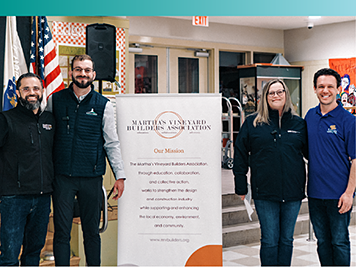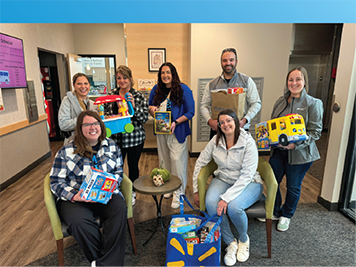Winnie’s first act
Wong hasn’t always been the go-to insurance broker for the Hollywood elite. Her insurance career began in Pennsylvania, where she obtained a degree in public administration with a minor in law. Instead of going to law school, she helped companies navigate employment practices and directors’ and officers’ liability insurance. But she was destined for something bigger. So, she packed her bags and headed west to California.
“I’d been in the insurance world for about three or four years when I started looking for an adventure. I wanted a challenge,” she says. “I’ve always been an avid fan of entertainment and was intrigued by the entertainment industry. I ended up looking around, saying, ‘What about concentrating on entertainment?’ And a recruiter said, ‘Hey, there’s an entertainment spot ready for you if you want to interview.’ And that was it.”
As an account executive, she filled in for risk managers of different divisions of a studio while they took their lengthy vacations—sometimes two weeks at a time. She had to be a quick study, learn their job, and do it well. Though the change coincided with another busy time in her life—becoming a parent—Wong was tenacious and took every opportunity to gain experience in the entertainment world, laying the foundation for the career she would go on to build.
“It takes years to understand entertainment,” she says. “I challenged myself to learn as much as possible. I became an aficionado, viewing contracts, putting together appropriate coverage in place, and making sure everything was shipshape,” she continues. “My trajectory was to be a great senior account executive, but I aspired to more. The only way to break through the glass ceiling was to springboard to another agency. I did—and I eventually ended up at Momentous.”
The good, the bad, and the ugly
During Wong’s tenure as an entertainment broker, she’s seen (and insured) it all. She has launched an errors and omissions program for film associations, found fair use policies for documentary filmmakers, written blogs for film associations, and published a book in 2013, with an updated edition coming this year. She has also faced and secured coverage for some less-common scenarios, such as securing cast coverage for a film with lead actors in their 90s and insuring a fleet of luxury vehicles and their professional stunt drivers for a car commercial.
For instance, she represents a long-running reality TV show chronicling the challenges of crab fishing in the Bering Sea. “When the producer said we were going to be following crab fishermen, I said, ‘Wait, isn’t this the deadliest job in the world?’” Wong recalls. But she rose to the occasion, though finding coverage wasn’t easy.
How do you insure an innovative but potentially hazardous and costly production? One step at a time, Wong says. At first, underwriters didn’t want to touch the production with a 10-foot pole, but Wong broke down the show’s insurance needs into easy-to-digest bites—workers’ compensation and accidental death coverage for the fishermen and camera operators, protection from potential liabilities related to the Jones Act—a maritime law that enables sailors to sue employers for injuries sustained on the job— coverage for the camera equipment, contingent watercraft coverage, and the list goes on.
They were like, ‘Winnie, there’s too much risk,’ and I said, ‘What are we going to need to get this insured?’” Wong recalls. So, she made some tweaks with the producer and made the impossible possible.
Speaking of dangerous jobs, Wong recently insured a renowned filmmaker who was documenting the relocation of a pack of gray wolves from British Columbia, Canada, to Colorado. That project understandably required some extra considerations.
“So, the director said we’re going to be in the plane, then she has to film the release of the wolves—it’s all very important footage that has to be captured,” Wong says.
“Great! You’re going to need coverage,” Wong recalls telling the director. “There were security and safety issues, contingent helicopter coverage to secure, accident, death, and disability coverage for the director and director of photography, and certificates had to be issued. There were risk management discussions conducted, including concerns regarding weather delays. But we did it. Thankfully, we got the shot.”
Flipping the script
For every project Wong has successfully insured, there’s been another that required a complete rethinking of liability, like when the creators of a streaming talk show series pitched an idea that sounded fun—in theory. They proposed that the host would wrestle three 14-year-old boys. Enter Wong, stage right, with a rebuttal.
“Wait, what?” she questioned. “I said, ‘Young boys could get hurt and are not experienced with team wrestling. This scene will need a stunt coordinator and will need to be loss-controlled.’ The production team came back and said, ‘Winnie, we are going to make sure the teens are preselected and insured for workers’ compensation. In addition, we will establish a wrestling ring with mats and require that the teens wear helmets.’”
Potential crisis averted.
Another project, a romantic comedy, was set on a voyage to Antarctica. The crew wanted to make the production look as realistic as possible—with penguins. As it was impossible to get a full production team to actually travel that far from their filming location in South America, the filmmakers digitally added the penguins using a green screen.



